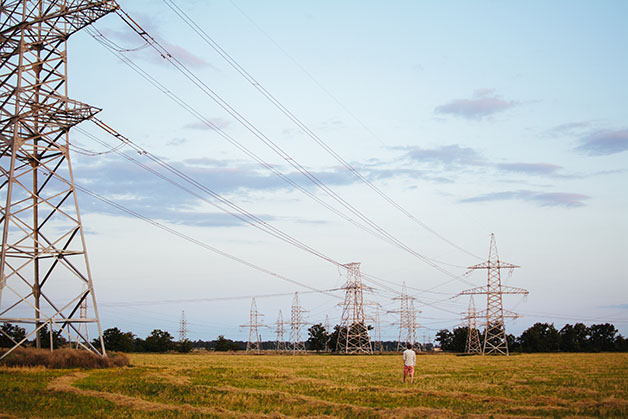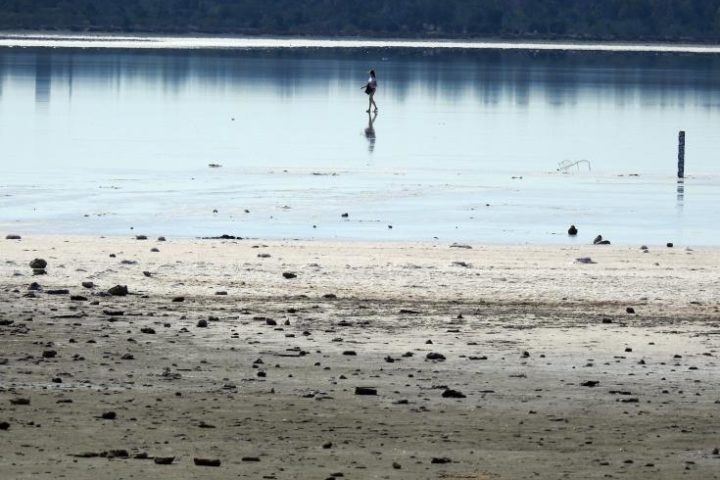By Sotiris Kyprianou
Climate change is affecting our country for good. Higher temperatures observed in recent years and changes in Cyprus’ climate, with frequent water scarcity and heatwaves, have led the island to be listed as one of the top countries that are negatively affected by it.
Climate change is a problem with multiple faces that requires multiple solutions.
Emission reduction, being added daily to the atmosphere, is the root of this problem, making the electricity sector one of the major contributors.
The European Union has already identified the need for change in the way we produce our electricity.
With the Green Deal development, the EU decided to create a policy plan in the fight against climate change.
This plan uses a holistic approach, including all policy areas contributing to climate change, aiming to reduce emissions from electricity production by 100%.
The reduction of emissions to zero from electricity production and the transition to a sustainable electricity sector is adopted by many people and negated by others.
Some experts negate this because of the difficulties Cyprus’ grid faces due to its nature, being a small and isolated system far away from other countries.
Our system’s nature makes it oversensitive to significant changes in the consumption of electricity observed during the summer months due to heat and fluctuations in the production of electricity due to renewable energy resources.
Thus, experts in the sector are sceptical about the feasibility of net-zero emissions.
The experts have every right to remain in a more conservative spectrum and negate such opinions due to the nature of companies and organisations.
Such as the EAC and TSOC, whose priority is always to ensure a continuous supply of electricity to all customers whilst the cost of electricity and the environment are considered secondary issues.
However, this needs to be changed.
Renewable energy technology across the globe has not remained the same in the last 10 years.
Technology changes and adapts to the needs that we have. Solutions to flexibility problems in the electricity sector have not remained the same.
Such solutions have been acknowledged and used by many companies that produce, transmit, distribute, and supply electricity.
These “new” solutions include batteries, demand response programs, green hydrogen and pumped hydro storage.
They have been used in the EU; however, they remain scarce in Cyprus.
Undisputedly, investors, and public services’ persistence to focus only on one technology at a time has created a massive problem for the electricity sector.
The “Photovoltaic-mania” that currently exists has forced system operators to halt new PV park construction.
The numbers speak for themselves, with new PV applications reaching 650MW (tripling the current capacity) and the land required to construct these PV parks covering 10 sq. km.
Our lack of strategic planning and low-risk mentality has undoubtedly placed us in the situation we are in today.
Cyprus requires political will and a strategic plan.
It is the only way Cyprus can reach zero-carbon by 2050.
The National Energy and Climate Plan created by the Ministry of Energy, Commerce, and Industry for 2030 is a good starting point in solving this problem.
Achieving our 2030 climate targets is not difficult and meeting our 2020 target was even easier but eventually missed.
Therefore, the way forward is creating a complete plan that will include all our targets until 2050.
For my master’s dissertation at the University of San Francisco, I had the chance to create such a plan, including multiple scenarios and modelling different and diverse solutions of how Cyprus as an island can reach zero-carbon by 2050 and how the cost of electricity is reduced at the same time.
You can find my dissertation’s strategic plan by clicking on the link.
It is time to listen to new opinions and approaches, and for once, to think about the future and the legacy they will leave without caring about short-term gains and immediate interests.
Sotiris Kyprianou is an energy engineer and Branch Manager of EuroAfrica Interconnector, Cairo office










